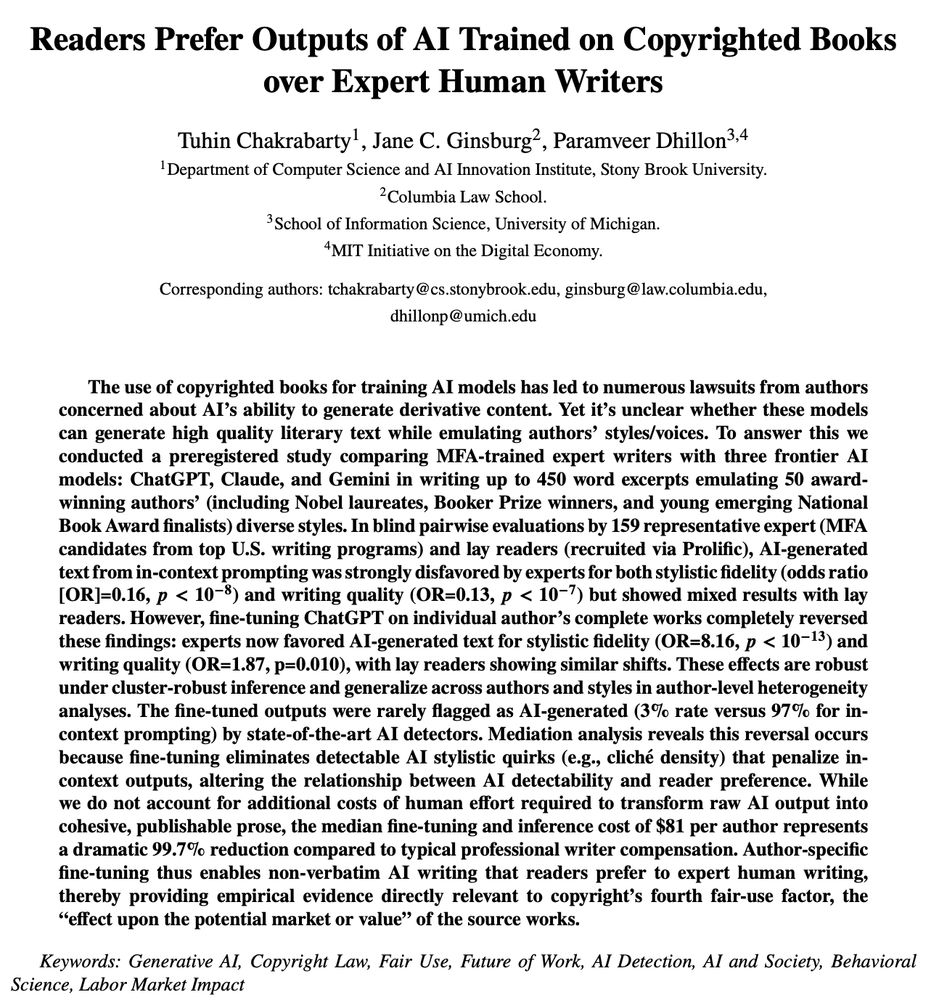Researcher → @SFResearch
Ph.D. → @ColumbiaCompSci
Human Centered AI / Future of Work / AI & Creativity
1. Another challenge is lack of serious engagement from AI researchers with humanities scholars.
2. This new work makes it sound like it just takes some finetuning to get big improvements.
bsky.app/profile/tuhi...
Authors have sued LLM companies for using books w/o permission for model training.
Courts however need empirical evidence of market harm. Our preregistered study exactly addresses this gap.
Joint work w Jane Ginsburg from Columbia Law and @dhillonp.bsky.social 1/n🧵

1. Another challenge is lack of serious engagement from AI researchers with humanities scholars.
2. This new work makes it sound like it just takes some finetuning to get big improvements.
bsky.app/profile/tuhi...


Why?
Because Fine-tuning removes telltale AI quirks like clichés that detectors flag and readers dislike, flipping the detectability-preference link. 5/n

Why?
Because Fine-tuning removes telltale AI quirks like clichés that detectors flag and readers dislike, flipping the detectability-preference link. 5/n
Fine-tuning #ChatGPT on authors’ ouevre completely reversed the findings: Experts now favored AI for style (OR=8.16) and writing quality (OR=1.87), with lay readers showing similar shifts. 4/n

Fine-tuning #ChatGPT on authors’ ouevre completely reversed the findings: Experts now favored AI for style (OR=8.16) and writing quality (OR=1.87), with lay readers showing similar shifts. 4/n
150+ readers blindly compared human vs AI versions.
Two AI methods tested:
- In-context prompting (ChatGPT, Claude, Gemini)
- Fine-tuning on complete works.
Both used same prompts for fair comparison. 3/n

150+ readers blindly compared human vs AI versions.
Two AI methods tested:
- In-context prompting (ChatGPT, Claude, Gemini)
- Fine-tuning on complete works.
Both used same prompts for fair comparison. 3/n
US Copyright Office recently acknowledged this 2/n

US Copyright Office recently acknowledged this 2/n

